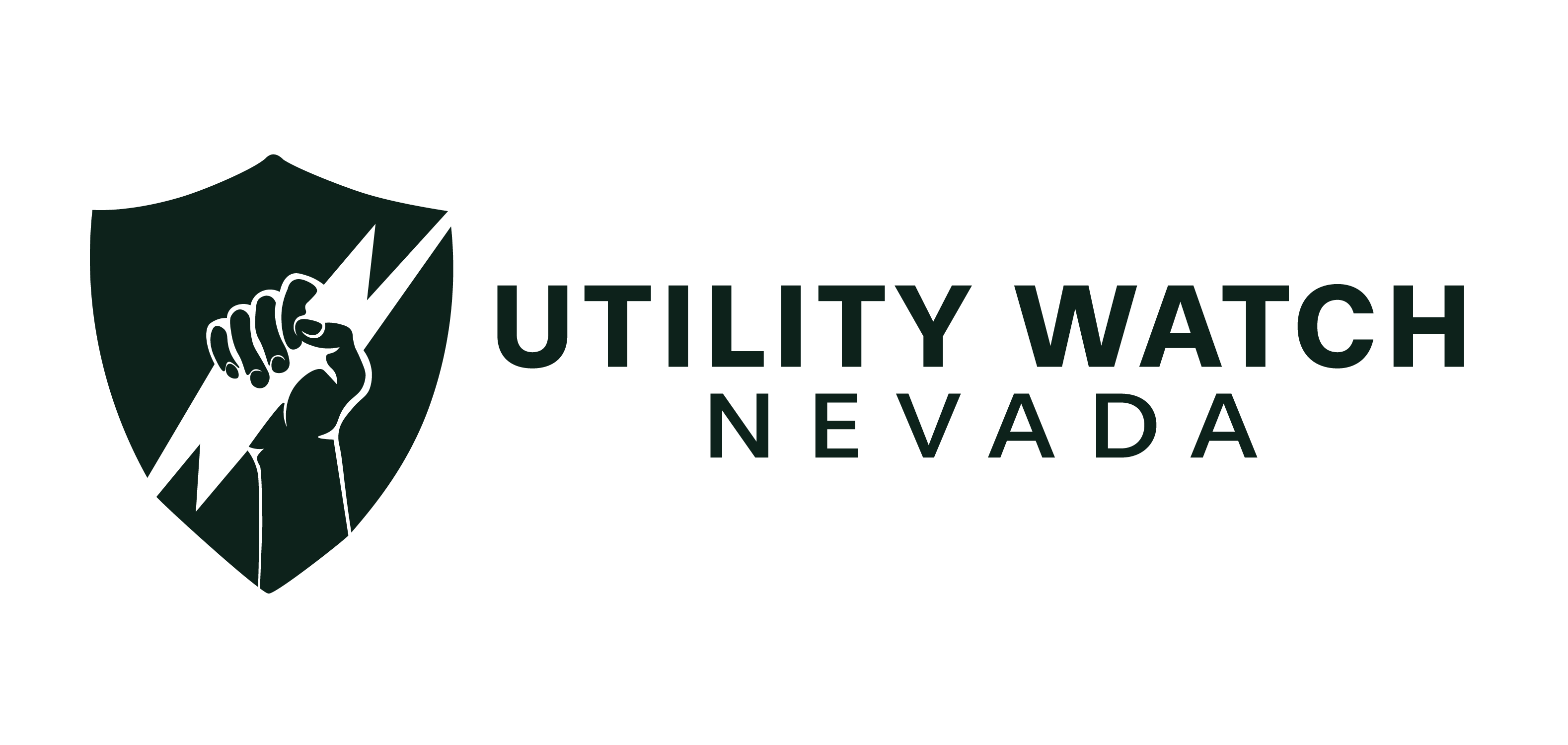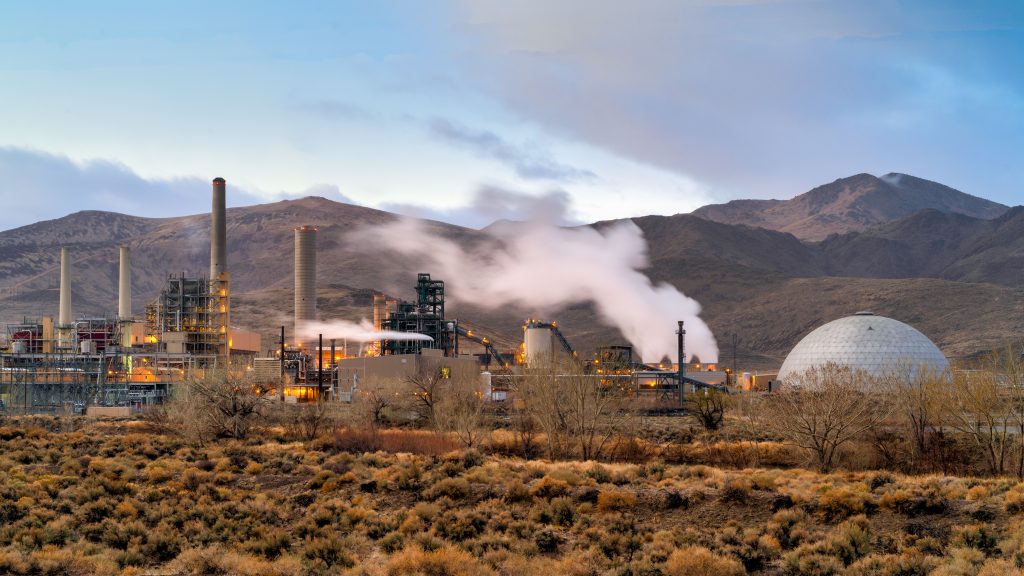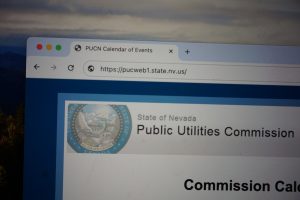This story was published by the Nevada Current.
Despite the rising costs of natural gas, NV Energy plans to build another gas dependent power plant in an attempt to address growing concerns about system reliability.
The energy monopoly has proposed to add another 400 MW combustion turbine gas plant – or “peaker plant” – to cover increasingly volatile seasonal peak demand. The gas plant would be the first built in Nevada in nearly 15 years.
Nevada and the greater West face extreme weather events – especially extreme heat – that are becoming more frequent and make serving summer peak demands especially challenging.
But clean energy advocates remain unconvinced a new natural gas peaking plant is the right move, and are pushing back.
Gas plants run on an expensive and volatile fossil fuel, say opponents. NV Energy is already heavily reliant on gas, getting about 72% of its energy from out-of-state natural gas sources. By adding more to the system, it is only increasing its dependence on – and its customers’ exposure to – an unstable market.
Last year, the average cost of wholesale U.S. natural gas was the highest it has been since 2008, according to the U.S. Energy Information Administration.
Natural gas prices have surged over the past two years, costing individual households in Nevada hundreds of additional dollars in heating bills. NV Energy and Southwest Gas have both said that recent higher utility bills are the result of the companies passing on increasing costs of natural gas.
For NV Energy, however, the balance between cost and reliability is a growing issue. A combination of coal plant retirements, population growth, regional competition for scarce resources, and extreme weather pose both reliability and economic risks for utilities.
The energy company has asked for expedited approval of the new gas plant from the Public Utilities Commission of Nevada (PUCN)– a regulatory agency responsible for approving utility plans and rates – arguing that the plant will need to be operational by 2024 to meet demand.
Clean energy groups say the tight timeline limits their ability to challenge whether or not a gas plant is the best and lowest-cost option for ratepayers, adding NV Energy needs better long- and short-term planning – and a comprehensive study of the system’s reliability and resilience needs.
“Nowhere has the company analyzed, much less demonstrated, that the high-cost and volatile cost of a gas peaking plant will be preferable to accessing high-quality, reliable clean resources available,” Advanced Energy United, a consumer advocacy organization, wrote to the PUCN.
A major concern for critics of the new plant is the cost of construction for the expansion, which would be passed on to customers. NV Energy estimates the 400 megawatt expansion of the Silverhawk Generating Station would cost $333 million.
Peak plants typically only run a few hundred hours of the year – or sometimes even less. Most of the year the plant sits idle and unused. Opponents of the natural gas peaking plant say Nevadans would ultimately be stuck paying off the significant capital costs of a mostly idle plant well into the future.
Unlike rising costs of fuel, which utilities must pass through directly to consumers without adding a mark-up to the price, utilities are allowed to earn a profit from infrastructure investments.
“NV Energy is giving short shrift to a decision with significant implications for the state’s energy, economic, and environmental future – a decision that threatens to lock-in high capital costs and volatile fuel costs from out-of-state markets and to lock-out advanced energy alternatives,”Advanced Energy United representatives told commissioners.
Critics of the proposed plant say what they feel is an inadequate analysis prepared by the utility does not warrant regulatory approval of the new plant.
NV Energy has amended its long-term resource plan four times in less than two years, including the addition of a natural gas peak plant. In Nevada the amendment process does not require the utility to compare all available power production options, meaning NV Energy may not have to consider cleaner or cheaper energy sources during the amendment process.
“The fact is that the company proposes to lock-in these uncertain and potentially substantial costs now, at the expense of cleaner, cheaper options based on an inadequate analysis,” wrote representatives for Advanced Energy United.
NV Energy acknowledged the natural gas option it chose is focused on addressing resource adequacy, not cost for ratepayers.
Nick Pappas, an energy market consultant hired by Western Resource Advocates, told commissioners that although NV Energy’s concerns about reliability are likely valid, he believes the energy company hasn’t justified its request. Pappas argued the PUCN shouldn’t approve a “decision of this magnitude unless and until NV Energy performs a robust technical analysis supporting its request.”
In filings, Western Resource Advocates noted clean energy alternatives are rapidly becoming more cost-effective in comparison to natural gas.
“Until a robust analysis and consideration of alternatives is undertaken it is not possible for the Commission to assess whether the proposed solution will sufficiently and effectively address the reliability concern, and creates the risk of overlooking reliable, more cost-effective alternatives better aligned with Nevada’s climate goals,” Pappas said.





